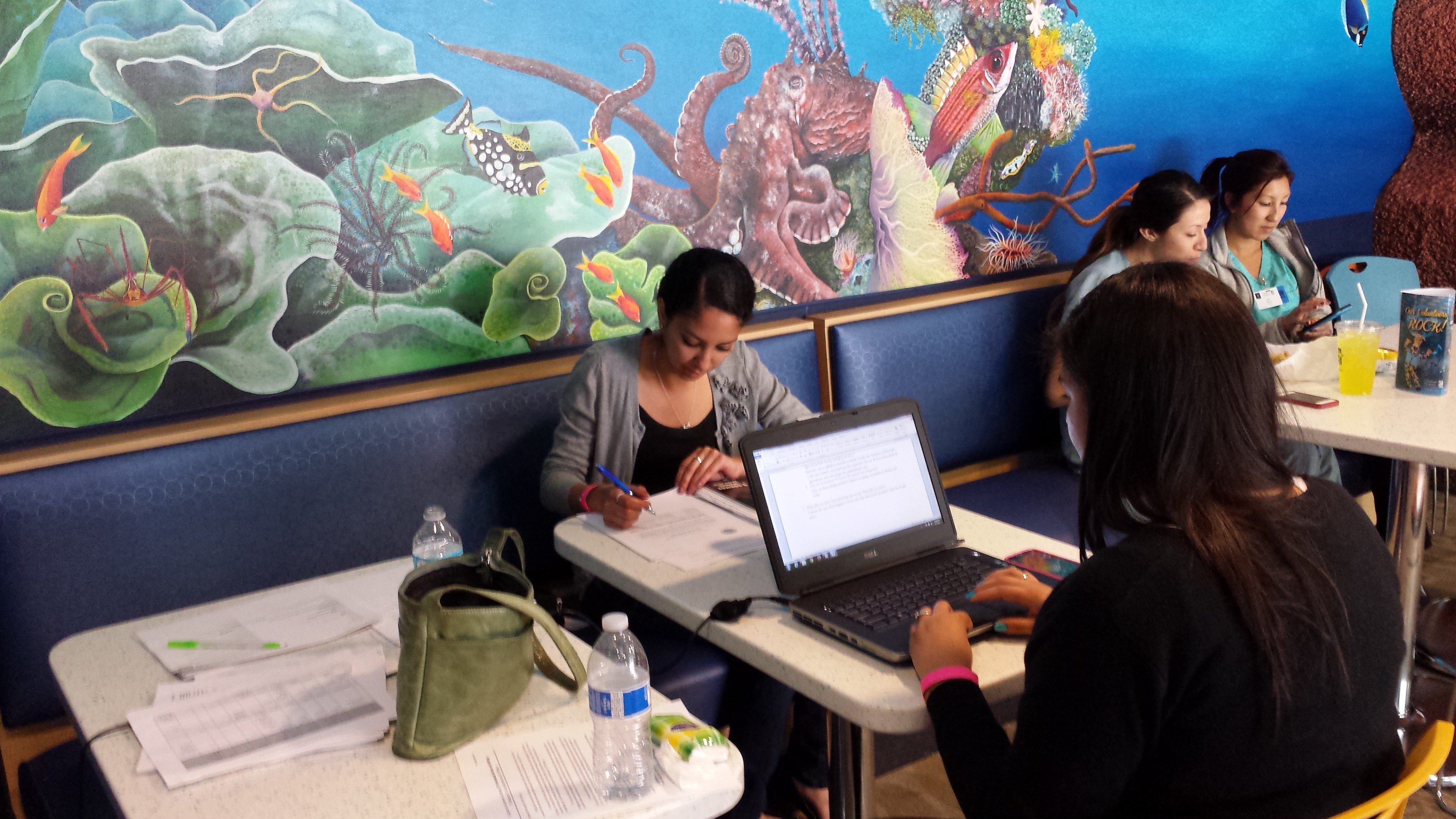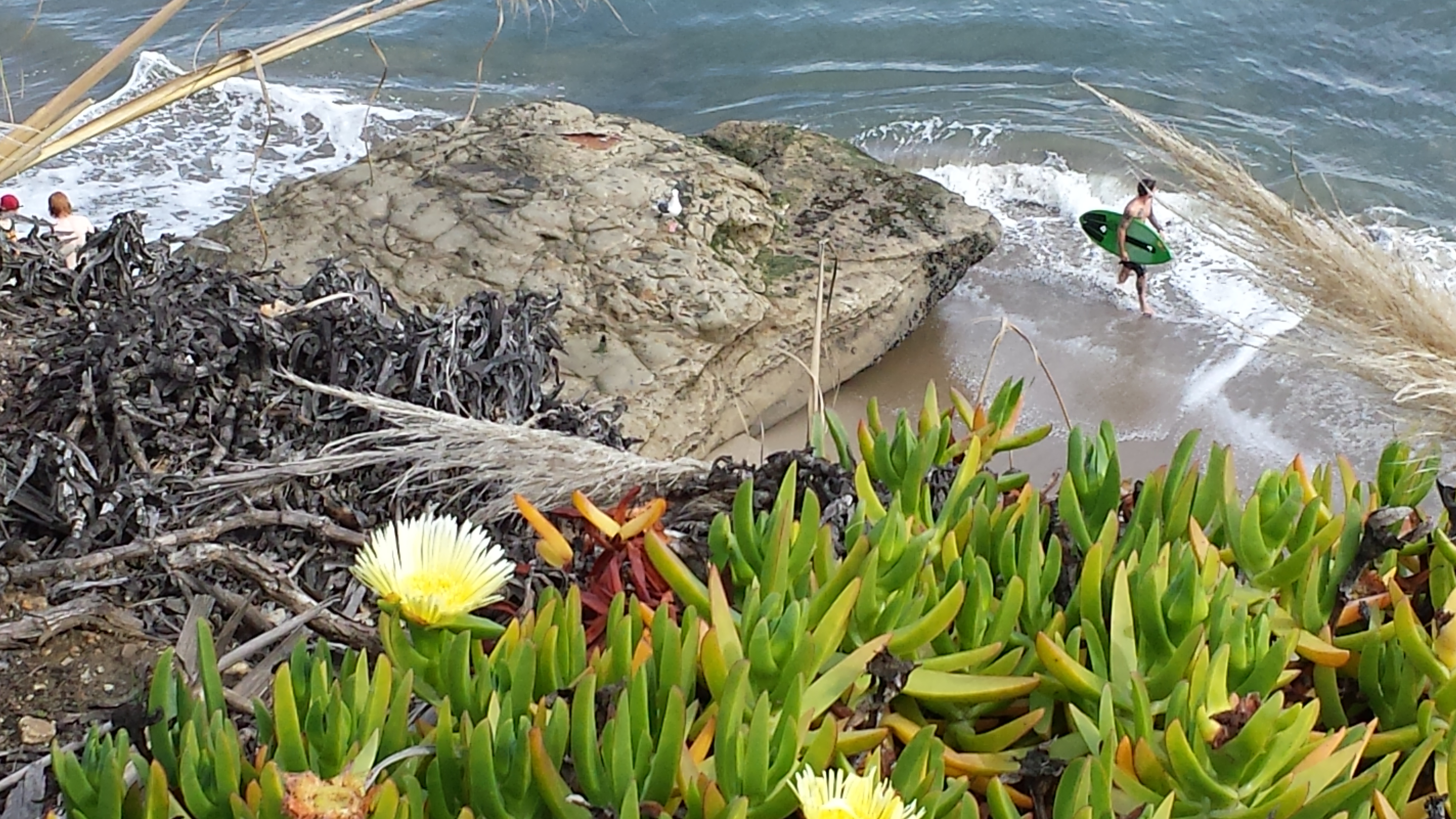Pardon the sexist allusion, but the farther I climb up the Ivory Towers of academia, the more I learn that being a successful researcher requires more than a nerdy attraction to crunching numbers and coding words in a dark office. Conducting successful research requires management skills to move projects forward. Real researchers are surfers, paddling positively in packs. They position themselves to catch opportunities or propel over the swells, seeking better waves that may approach in the future.
Effective managers surf on teeter-totter boards, balancing the cunning and empathetic aspects of their personalities and racing forward when they see promising waves. They strategically position themselves in the middle of the ocean where they anticipate the highest probability of wave breaks, being aware of the space around them and goals of others. They call out to other surfers when they see a good waves and paddle out into the abyss as quickly as they can, trusting that someone will help them benefit from their idea. They know who to shout out to when sighting waves and other changes in the environment because they understand the needs and motives of those they work with. Once properly trained, their fellow surfers don’t need auditory cues to know when to wait or paddle.
Though I mostly surfed alone during my Ph.D., I have become a manager during my postdoc. In my 1 and 9/24th years as a postdoc, I’ve learned that managing opportunities to work with others is vital. My work is useless and inefficient until I share the process and product with research assistants, colleagues, and the community. Why do we conduct research if not for those around us? Although coding numbers and words can quench the thirst for creativity, the interactional aspect of academia sustains it. Change is not created by adding one more article reference to one’s lonely, self-directed CV.
Working with 12 undergraduate research assistants teaches me that organization is the best way to catch the most waves and achieve the longest rides. As I’ve watched my girls (11/12 of my RAs are female) strive to improve their understanding of our research mission and their translation, transcription, writing and outreach skills, I’ve learned to delegate tasks more efficiently and gained invaluable insight from conversations with them. Some of my girls are innately gifted at coordinating busy participants’ schedules. Others prefer to listen to the wise words of our participants as they transcribe focus group audio recordings. Others paddle out bravely into the community, asking for support from the media and groups of people affected by the diseases we study. My girls are untainted by the frustrations of experienced academics and thus creative in their approaches to engaging community in advocating for change. After our team rides parts of the best waves together, we debrief on the shores of my office, enhancing the analytic and dissemination process.

Research Assistants working to understand pediatric coccidioidomycosis (valley fever) at Children’s Hospital Central California
The most tragic part of our current scientific research paradigm is its removal from “real life.” Most scientists steal samples from their communities, scrutinize them under microscopes and computer programs, and then publish them in journals that only other scientists read. Unfortunately, the results are rarely fed back to the community that donates their time, interest, and (usually private) information. Publications are many researchers’ purpose in life; their main drivers. While that paradigm (“Publish or perish”) might be effective in basic biomedical or computer science research (which “normal” people do not understand anyway), other fields should be ashamed. Why do we conduct research if not for our participant groups? Successful researchers are strategic businesswomen, creating and/or sustaining empirically-supported change (beginning with an experimental or observational plan and ending with an improved policy or practice).
Genetics have gifted me with skin that does not require an umbrella to match this cool, Ivory Tower environment. It’s my job as a researcher to go out into the light, spot the waves of change and ensure that others benefit from them. I only have one message for you today: Save an academic; teach them to surf.
PS: I’m still learning.
